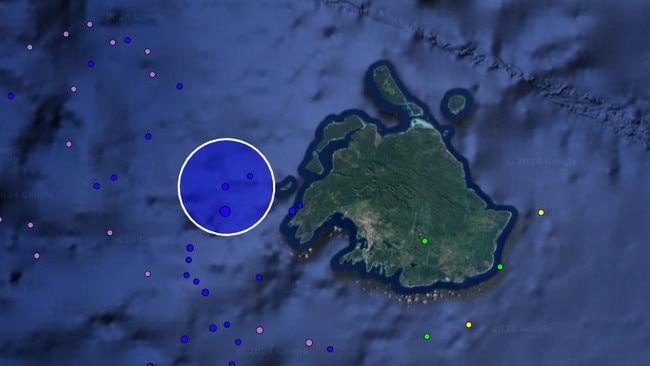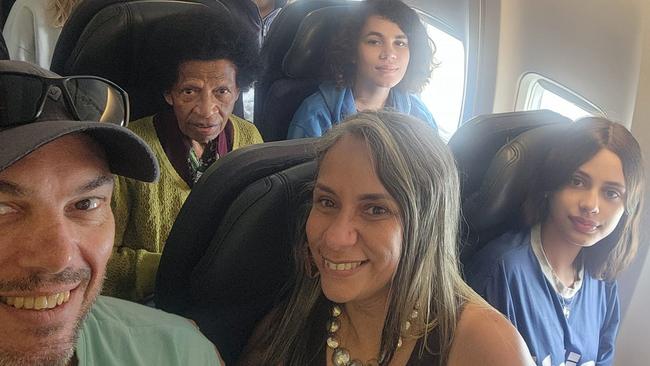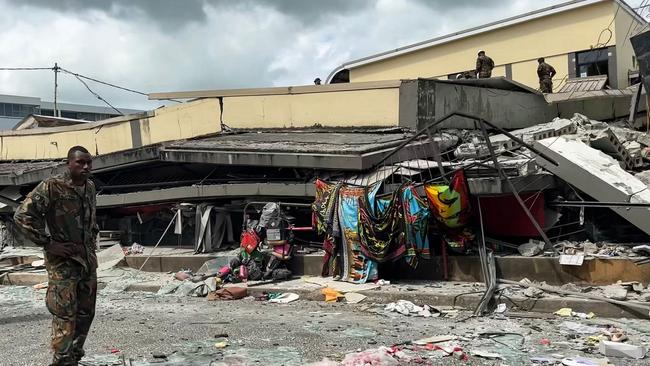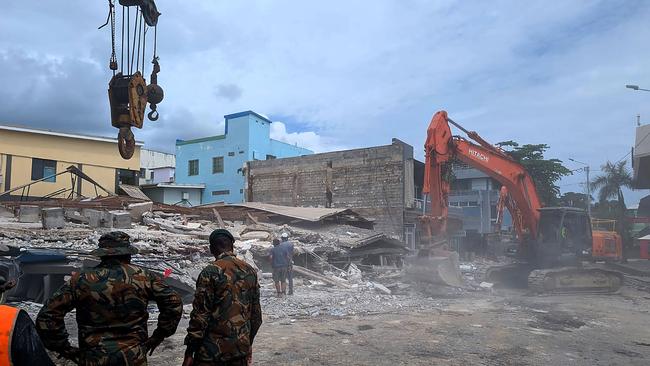‘Tragedy here’: Darwin family caught in Vanuatu earthquake await return to Australia
A Darwin family of five who survived a massive earthquake on Vanuatu are anxiously waiting to return home, as Australian citizens begin to be repatriated.

Northern Territory
Don't miss out on the headlines from Northern Territory. Followed categories will be added to My News.
A Darwin family of five who survived a massive earthquake on Vanuatu are anxiously waiting to return home, as Australian citizens begin to be repatriated.
The 7.3 magnitude earthquake struck offshore of Vanuatu’s most populated island, Efate, on December 17.
The quake brought buildings in the country’s capital Port Vila crumbling down – with hundreds of Australian citizens in the area.
A second earthquake with a reported magnitude of 6.0 occurred on Wednesday.
It has been reported about 14 people are confirmed dead but that number may rise.
NT teacher Michaela Dunn, her partner Michael, her daughters Annise and Sienna, and her 80-year-old mother, Mercy, were staying near Port Vila when the earthquake rocked the island.
“I think it was just gone 1pm, we were in the kitchen making a cup of tea and that’s when we got some shakes,” she said.
Ms Dunn said the adrenaline kicked in fast.

“I can’t articulate the power and the noise, the constant rumbling and the violent shaking,” she said.
“We got to the back veranda of the house, I remember yelling at my mum, who’s 80 … and there seemed to be one really big violent wave.
“It was like it threw you up, then flung you and we were all off our feet.
“And my mum, fortunately, it was only like three steps down, but she got flung off the veranda, and landed in the garden.
“She’s got no scratches, no broken bones, no cuts, no injuries, nothing.”

After the earthquake, Ms Dunn said the priority was making sure everyone was okay.
“We looked over to the harbour and then we could see the smoke and dust … of what we knew were buildings collapsing,” she said.
“And to the right we could see where the port was, just the landslide collapsing.
“We knew it was big, but I think watching that, we were like, ‘There’s tragedy here’.
Trying to get back to Australia has been a tense wait, especially not knowing when the airport would reopen, and communication being so difficult, Ms Dunn said.
“There’s been lots of rumours flying around as to when the airport will be open, is it going to be one week? Is it going to be two weeks? Are we going to be on repat flights?” she said.

“It’s been really hard because of connectivity and the internet and, you know, things like being able to update all of your details on Smart Traveller.
“We relied on family back in Australia a lot.”
Ms Dunn attended an information session on Saturday where attendees were told commercial flights would return to Vanuatu on Sunday.
DFAT told this masthead the Australian High Commission has been providing information and updates, and coordinating the allocation of available seats on Australian Defence Force return flights.
“These aircraft are configured primarily for humanitarian delivery and are not appropriate to carry certain vulnerable, injured or elderly passengers,” a spokeswoman said.
“Allocation of seating on ADF flights has also taken into account the ability of individuals to board and exit the ADF aircraft.”
DFAT confirmed on Saturday that 424 Australians had arrived in Australia from Vanuatu on ADF flights.
On Wednesday, a team of six medicos part of the Australian Medical Assistance Team were deployed to Vanuatu from Darwin.




